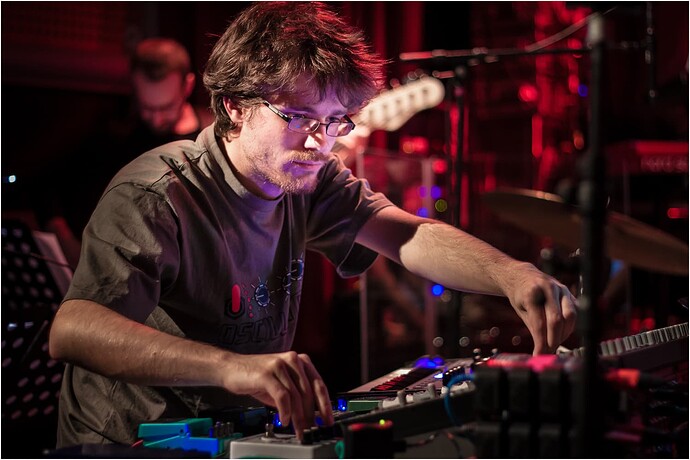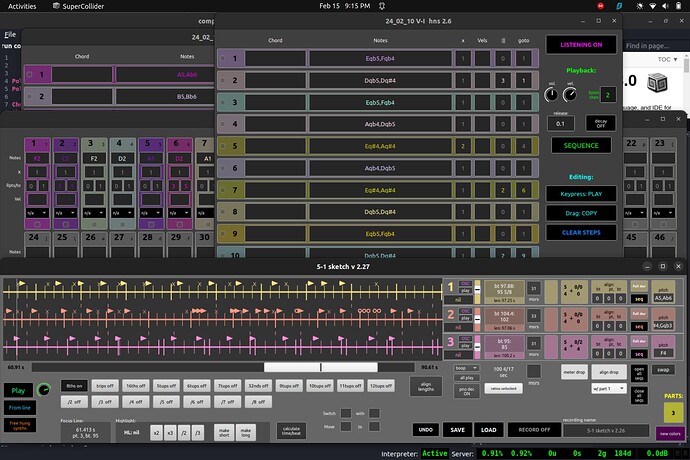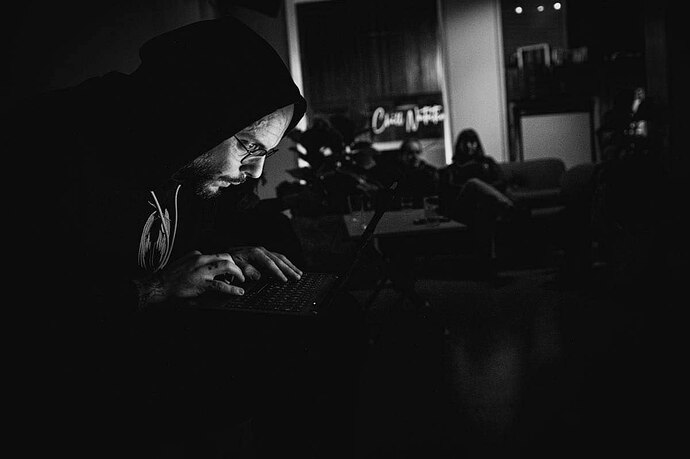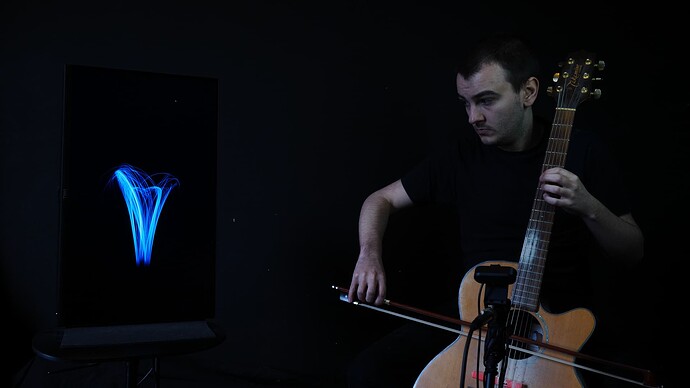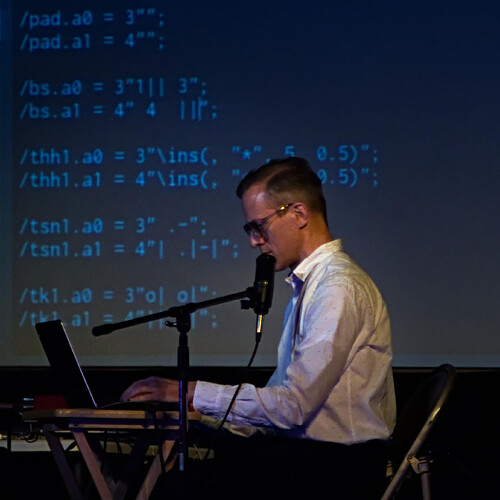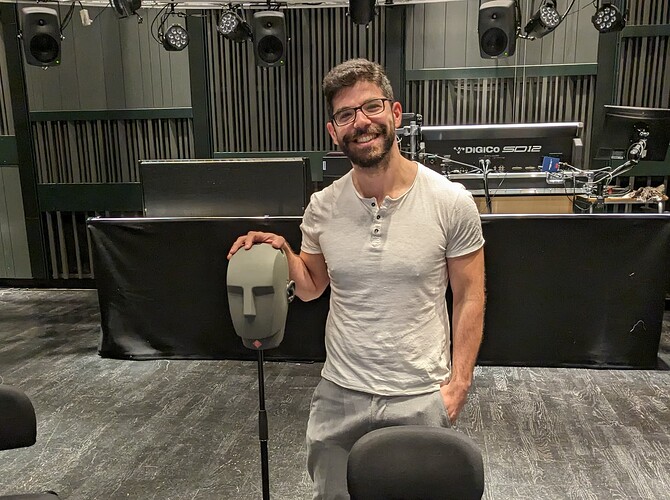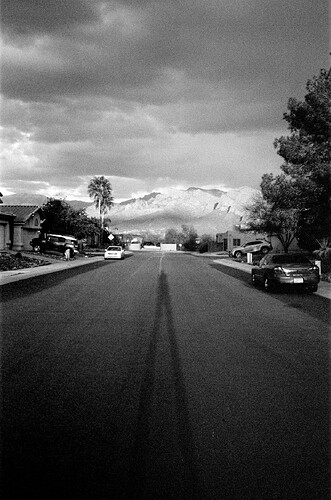Halllloooo again!
I’m excited to be back with another season of SuperCollider meetups, hosted by our friends at Notam! The meetings will take place online approximately once a month on Zoom at 7pm CET (Oslo Time):
SuperCollider meetup:
Meeting ID: 974 3258 0111
Link: Launch Meeting - Zoom
At these meetups, SuperCollider users (usually 2 per meetup) present a project, class library, instrument, or artistic practice featuring our favourite audio programming environment. These presentations are informal, vary in their format, and are intended to showcase the diversity and flexibility of expression our beloved SC permits.
If you’re interested in presenting a project/workflow/tool/whatever at one of the Meetups, send me a DM and I’ll find a slot for you - absolutely everyone is welcome to share!
All community events at Notam fall under the NOTAM Code of Conduct to make them as inclusive as possible. Please follow read the full Code of Conduct before joining an event. If you have accessibility related requests or questions about the meetup, please send me a message here and I’ll do what I can to address them!
In the week before each meetup I’ll return here to present info about the forthcoming presenters, so be sure to follow this thread via the  on the right!
on the right!
The meetup dates for spring 2024 will be:
2024-02-28T18:00:00Z
2024-03-27T18:00:00Z
2024-04-24T17:00:00Z
2024-05-22T17:00:00Z
Looking forward to see you soon!!
9 Likes
How exciting - our first SC Meetup of 2024 is already next week! Our first presenter is none other than @Spacechild1:
Christof Ressi is an Austrian composer, arranger, programmer and multimedia artists. As a composer, he works in various fields of music, such as contemporary classical, jazz, dance/theater or experimental electronics. He performs his own audio-visual pieces, either solo or with his duo Ressi/Benes. He is a regular contributor to open source projects, including Pure Data and Supercollider, and publishes his own software under open source licenses.
“Together we will take a deep dive into the architecture of Scsynth and Supernova. Most implementation details are – rightfully so – abstracted away by the Class Library and few SC users interact with the Server directly. However, some of these abstractions are “leaky”. As a consequence, knowing how the Server works internally can be very helpful for using it effectively or avoiding certain problems. We will also discuss the strengths and limitations of Scsynth compared to other computer music platforms, such as Pure Data. There will be much room for questions, so feel free to ask anything that you ever wanted to know about the Server.”
www.christofressi.com
6 Likes
Our second presenter on Wednesday is Derek Worthington:
Derek will be discussing the three main systems he’s built in SuperCollider. The first is a set of visual interfaces for assisting in the composition of polytempic music (music in multiple tempos simultaneously). This program takes care of the calculation and measuring that would otherwise be required, enabling a smooth compositional workflow for sketching, testing, and developing ideas. The second is a system for directing an improvising ensemble, which communicates information graphically by displaying parameter-value pairings. The program gives the director many options for gradually or abruptly sculpting the texture and form of the improvisation. The third is a suite of patches for improvised live processing, often applied in a duo or trio setting to manipulate the sound of the acoustic improvisers.
//
Detroit-based musician Derek Worthington works in the intersection of composition and collective improvisation. As a 2023 Composer in Residence at the Zurich University for the Arts, he composed a set of polytempic miniatures for sextet, merging creative improvised music with intricate temporal structures. His “Lossy Codecs” system for directed improvisation explores unique modes of information transfer, applying methods and aesthetics of electronic music to acoustic group improvisation. Worthington has presented original work around the United States and internationally, in cities including New York, Chicago, Rio de Janeiro, Zurich, and Berlin.
2 Likes
See you all in a few hours! 
2 Likes
It would be nice if the meetups were recorded !
3 Likes
I agree! GDPR makes things a little bit less-than-straightforward, plus hosting/maintaining the recordings would require some resources (Notam also does online meetups for Max/MSP, spatial audio, etc.). I’ll bug the folks at Notam and see if we can come up with a solution! 
1 Like
Just to follow up on this:
I spoke to the administrator at Notam about why we don’t record them/maintain an archive and was provided with another reason I didn’t mention above - a previous host of the meetups found that recording them led to less engagement, fewer questions, etc. from participants, and one of Notam’s goals with these meetups is to keep them casual, inclusive, and low-pressure. So they decided against recording all the meetups, unfortunately.
Buuuuuttt…that doesn’t stop users/presenters from sharing their notes/slides/code on this forum or elsewhere! @nathan wrote a great blog post based on the work he shared with us in September, for example! It would warm my heart if the topics that appear at the meetups blossom into threads on the forum… 
1 Like
Thanks for the follow up !
More exciting SuperCollisions on the way next week featuring @bgola!
Bruno Gola is a Brazilian computer artist, sound artist, live coder and musician based in Berlin. He studied Computer Science in São Paulo and Art and Media in Berlin, where he developed his practice in building and programming systems for live improvisation and interactive installations. Since 2023 he works as assistant professor and teaches the class of Generative Kunst / Computational Arts at the Berlin University of the Art with Alberto de Campo. He works with SuperCollider since 2017, developing and having collaborated with different Quarks, bugs and improvements in the language as well.
“I will go over projects I worked using SuperCollider and other tools since 2019, from installations (Bruto, 2020) to audiovisual systems for performing live (c0l1v3, since 2021) (microwebs, 2023) and maybe talk a bit about the use and teaching of SuperCollider in the context of the Generative Arts program of the Berlin University of the Arts.”
2 Likes
Also sharing some of their work on Wednesday is @jordan!
Jordan Henderson, currently based in Glasgow UK, is a composer/artist/musician obsessed with how small groups of people interact and coexist while playing music together. They are attempting to make computer generated audiovisual beings that sit onstage and interact in a comparable way, watching and listening to other performers while responding through sound and communicating gesturally — this forms the topic of their ongoing PhD.
Jordan will discuss:
- What is so great about seeing people perform — performative over sonic music.
- Communication, gesture, movement, dance, empathy, and the mirror neuron system
- What are the psychological mechanism of human performance and which of these (if any) can be emulated by a computer?
- Existing models and their challenges of applying them to a computer
- My approach (nestable and composable data mappings), looking at two works:
- How and why Supercollider plus some small demos
- Data structures (key–value pairs) in synthdefs.
1 Like
/ === IMPORTANT INFORMATION: SCHEDULE CHANGE === /
Next week’s SC Meetup will happen earlier than usual, at 2024-04-24T14:00:00Z
/* ================================================ */
Our first presenter will be @jamshark70:
James Harkins composes and performs with SuperCollider under the moniker Process Prototype, with 20 years’ experience ranging from academic/experimental music to techno, house, breakbeats and ambient. Recent work focuses on a self-designed live coding environment, cll , implemented entirely in the SuperCollider language, most recently featured at the Guangzhou Outdoor Arts Festival in January 2024, with Michael Garza (bassoon). Dr. Harkins is currently an Associate Professor in the Modern Music Department of Xinghai Conservatory of Music in Guangzhou, China, teaching electronic music production, film music and sound design.
James will demonstrate his live coding improvisation environment, unpoetically named “chucklib-livecode,” with detours into some of the Quark components that it uses.
/ === IMPORTANT INFORMATION: SCHEDULE CHANGE === /
Reminder that next week’s SC Meetup will happen earlier than usual, at 2024-04-24T14:00:00Z
/* ================================================ */
Anna Xambó is an experimental electronic music producer and researcher. Her research and practice concentrate on creating sound and music computing systems looking at novel approaches to collaborative, participatory, and live coding experiences. She is currently a Senior Lecturer in Sound and Music Computing at the Centre for Digital Music (C4DM), School of Electronic Engineering and Computer Science, Queen Mary University of London. She is the PI of the AHRC-funded project “Sensing the Forest: Let the Forest Speak using the Internet of Things, Acoustic Ecology and Creative AI" (2023-2025) and has also led the EPSRC HDI Network Plus funded project “MIRLCAuto: A Virtual Agent for Music Information Retrieval in Live Coding” (2020-2021).
“In this session, I will present the state of affairs of the development of MIRLCa, a self-built tool in SuperCollider, which is a user-friendly live coding environment that allows the live coder to query crowdsourced sounds from the Freesound online database using MIR techniques together with interactive machine learning based on the FluCoMa library resulting in a crafted sound-based music style. The session will start by showing a workflow example of music conceptualisation using the tool, the development process and status, and the reception of the tool by the live coding community so far.”
https://annaxambo.me
https://mirlca.dmu.ac.uk
https://sensingtheforest.github.io
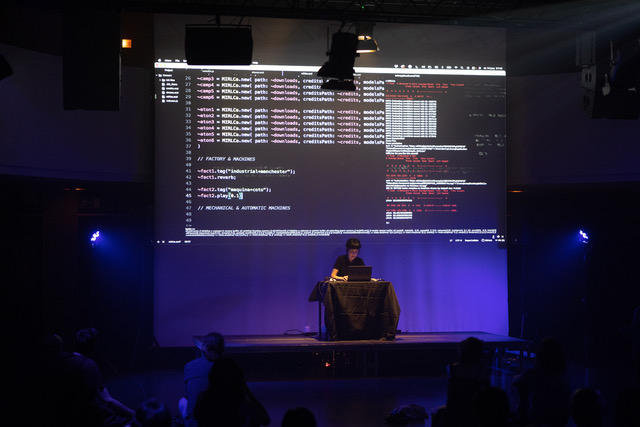
Meetup starts in 2 hours - hope to see you there! 
Our last meetup of the spring is already next week!  We’ll be entering summer on a high note, however! The meetup will be at our regular time: 2024-05-22T17:00:00Z
We’ll be entering summer on a high note, however! The meetup will be at our regular time: 2024-05-22T17:00:00Z
@StefanoCatena is an Italian composer and researcher: he specialises in acousmatic music, ambient and multimedia installation, sound synthesis, spatialisation and sound programming. He graduated at Milan’s Conservatory in Electronic Music with the 110/110 cum laude. His works have been included and performed in some of the most important international conferences such as Sound and Music Computing (SMC), Colloqui d’Informatica Musicale (CIM), Sonosfera (Pesaro) and many more. He is currently pursuing a PhD in Music, Technology and Innovation from De Montfort University in Leicester under Peter Batchelor, Leigh Landy and Scott Wilson.
stefanocatena.github.io
//
In this talk I will present some of my approaches to spatialisation in the music I make, which is mostly acousmatic, and my personal workflow with multichannel and binaural systems. I will also give a brief overview of spatialisation technologies, and how SuperCollider helps me in creating the spatial textures that I use in my works. Moreover, I will show some examples of the code that I use and how I deal with large multichannel signals created by SuperCollider.
1 Like
Our spring program will be rounded off with a presentation by @madskjeldgaard:
Mads Kjeldgaard (he/him/they/them) is an electronic music composer in Copenhagen, Denmark.
His main fields of interest are computer music, interactive sound, and algorithmic composition.
He has studied Electronic Music Composition at the Danish Institute of Electronic Music (DIEM) at the Royal Academy of Music and has a degree in journalism from the Danish School of Media and Journalism. As a developer, he has worked a number of years at The Norwegian Center for Arts and Technology (aka Notam) and at Torso Electronics.
//
I’ll be talking about the practice of making “composition-instruments” in SuperCollider – small and large scale compositions you can perform and interact with as interactive instruments.
3 Likes
here is the code from my talk today, thanks everyone
4 Likes
trying to install Monolithic here:
CuePlayer dependency, easily installed using Quarks;
FZFdef.sc needs Singleton, installed with Quarks also.
thx!! 
![]() on the right!
on the right!